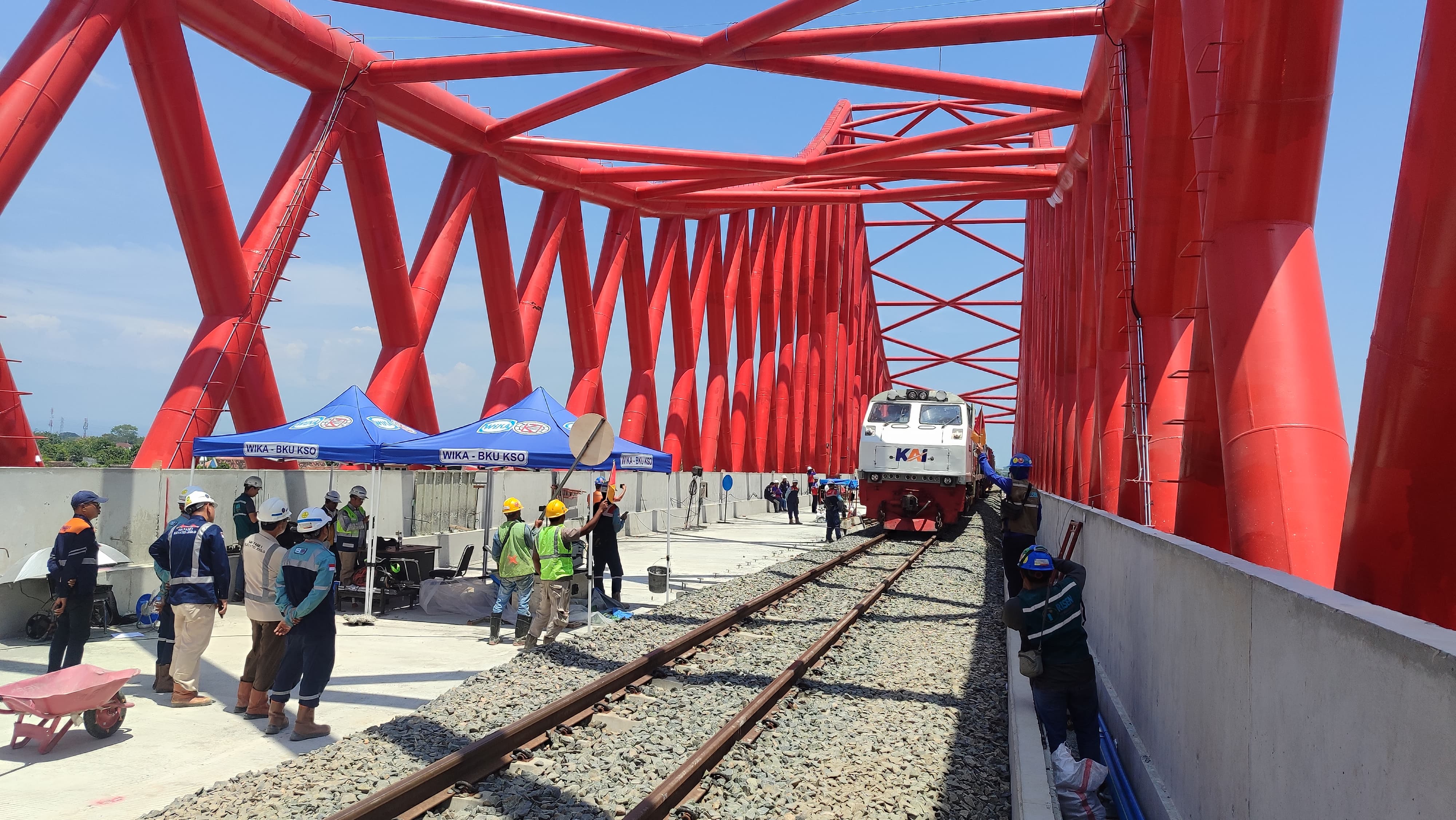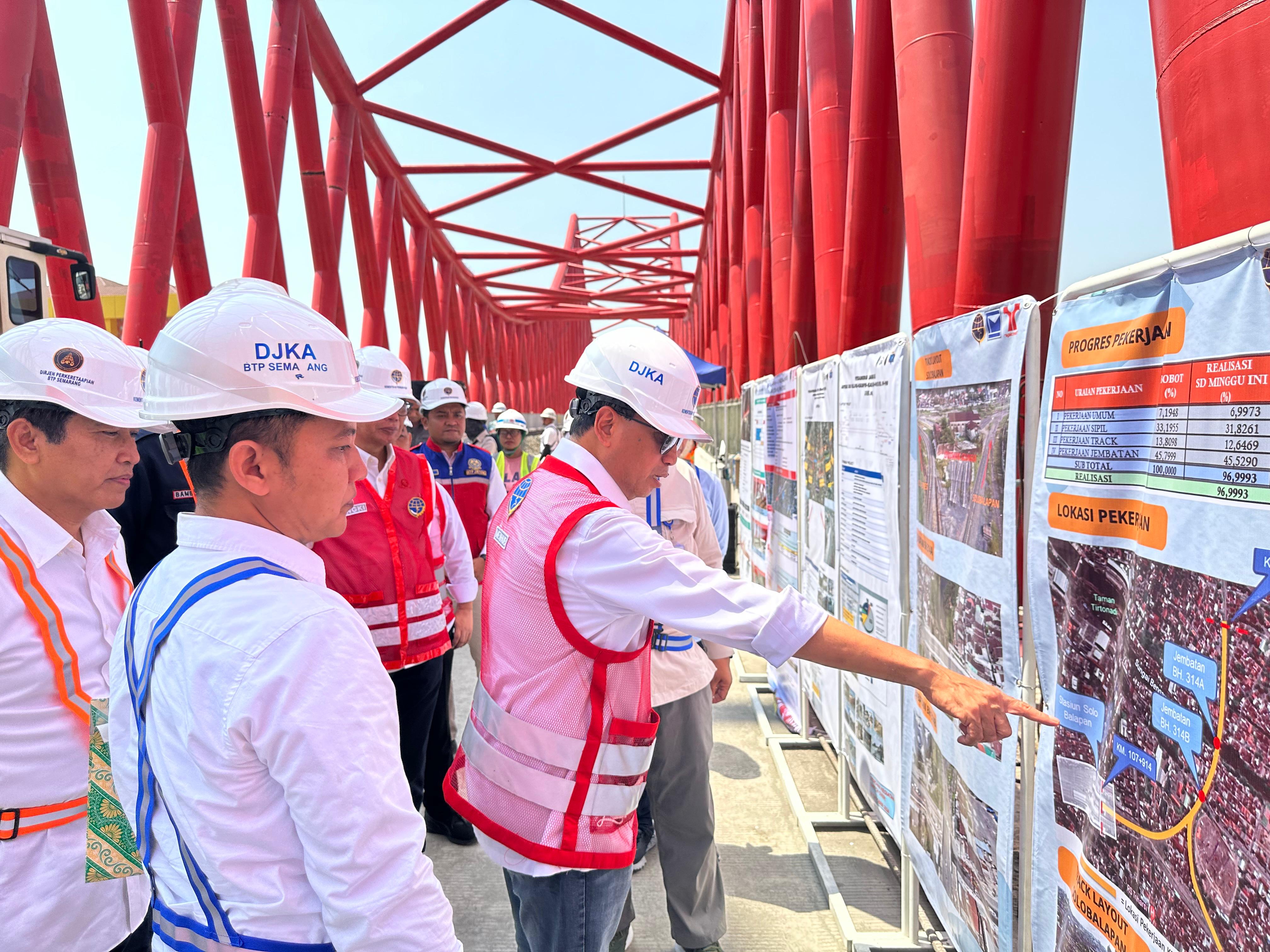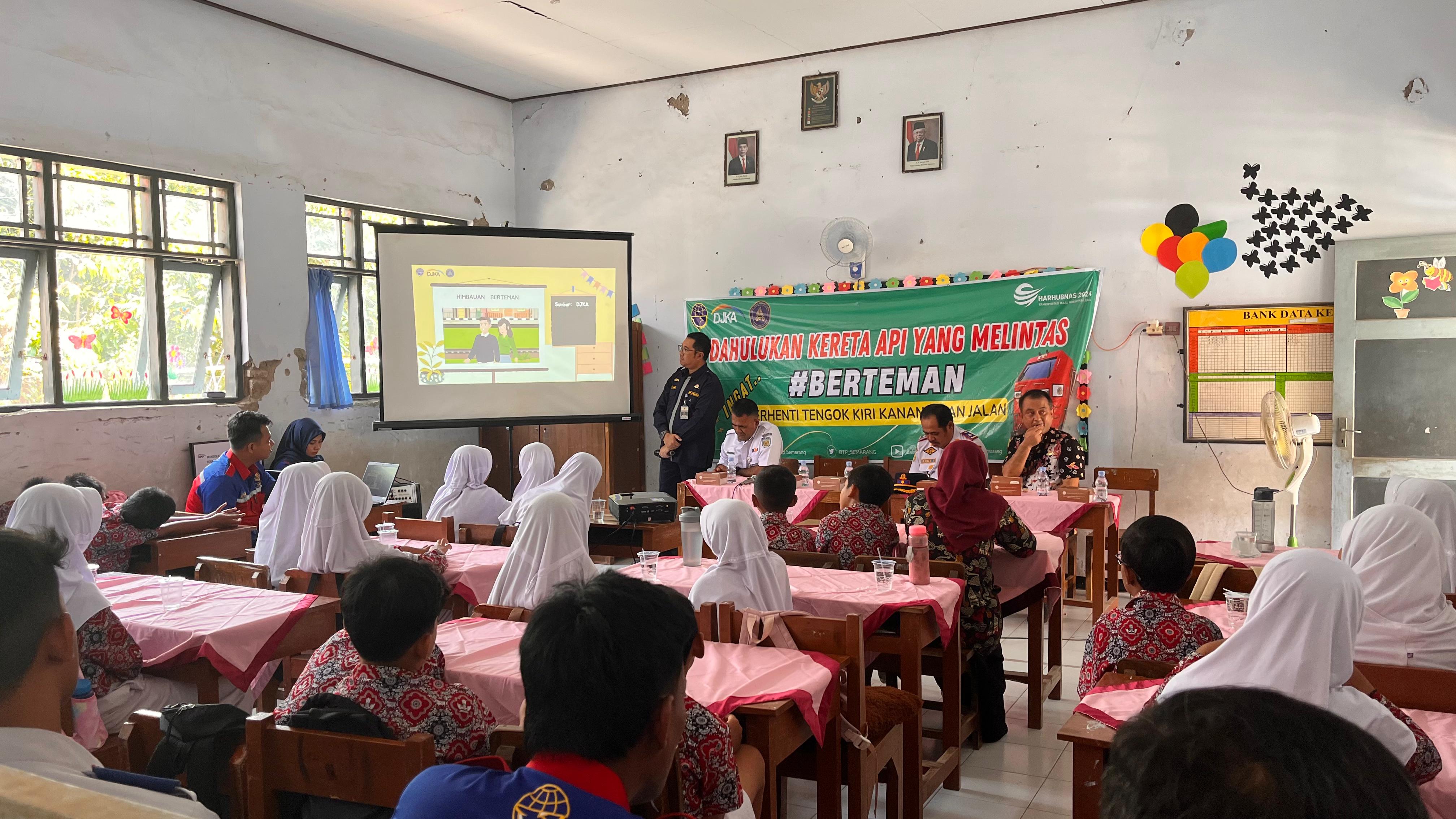DIRECTORATE GENERAL OF RAILWAYS COLLABORATES WITH BNN CENTRAL JAVA, INCREASING P4GN SOCIALIZATION AT BTP SEMARANG

The Directorate General of Railways, Ministry of Transportation, conducted outreach activities on the Prevention and Eradication of Narcotics Abuse and Illegal Trafficking (P4GN) and Narcotics Precursors, held at the Semarang Class I Railway Engineering Hall Office. This event was organized in collaboration with the National Narcotics Agency (BNN) of Central Java Province, aimed at raising awareness and vigilance among all employees about the dangers of narcotics abuse.
The event began with opening remarks by the Secretary of the Directorate General of Railways, Jujun Endah Wahjuningrum. In her speech, she emphasized the Directorate General of Railways' commitment to supporting the government's efforts to eradicate narcotics abuse at all levels of society, including within the railway work environment. "We must work together to protect ourselves and our work environment from the dangers of narcotics, as this is crucial for ensuring the smooth and safe operation of railways," stressed Jujun Endah Wahjuningrum.
The activity commenced with a urine examination of employees. This test serves as an early detection measure to ensure employees are free from narcotics abuse. This step is part of the Directorate General of Railways' commitment to creating a healthy and drug-free workplace.
Following the examination, the event continued with a presentation by the Central Java Province BNN team, which conveyed important information about the dangers of narcotics abuse, its social and health impacts, and strategies for prevention. This socialization aims to provide employees with a deeper understanding, encouraging them to actively participate in preventing narcotics abuse both at work and in their personal lives.
Narcotics pose a serious threat to both physical and mental health. Narcotics abuse can cause significant central nervous system disorders, affect brain function, impair memory, and lead to addiction. Commonly abused substances include heroin, methamphetamine, and cocaine, which can cause long-term damage such as heart and lung issues, and even death due to overdose.
Physically, narcotics can lead to various diseases such as hepatitis and HIV/AIDS, often transmitted through the use of unsterile syringes, brain damage, kidney failure, and heart complications. Drug users also face a high risk of mental disorders, such as depression, anxiety, and hallucinations, which may lead to dangerous behavior.
The social impacts are equally severe, as narcotics often trigger criminal activities, including theft, violence, and even murder. In the workplace, narcotics users not only endanger themselves but also their co-workers, as well as the work systems that depend on speed, accuracy, and concentration, especially in sectors like railways.
BNN Central Java provided several steps to prevent narcotics abuse, both in the work and personal environments, including:
- Education: Regular outreach and anti-drug campaigns.
- Supervision: Periodic urine tests conducted at the Semarang Class I Railway Engineering Center.
- Social Support: Positive environments fostered by family and co-worker support.
- Training: Strengthening self-resilience and stress management skills.
- Law Enforcement: Strict sanctions for violators to maintain work discipline.
Priatiwanto Nugroho, a BNN Extension Officer for Central Java Province, emphasized in his presentation the importance of prevention efforts, which not only focus on avoiding narcotics but also on enhancing worker productivity and health. "Efforts to prevent drug abuse in the workplace are not only aimed at avoiding narcotics, but also at fostering more productive, healthy behavior, which will improve work quality and contribute positively to the agency and society at large," stated Priatiwanto Nugroho.
With this outreach, it is hoped that all employees within the Directorate General of Railways will gain a better understanding of the dangers of narcotics and commit to staying away from them, while also becoming part of broader efforts to combat narcotics abuse in Indonesia.






Komentar
LOGIN FOR COMMENT Sign in with Google